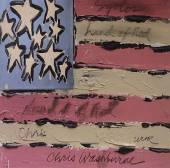Home » Jazz Articles » New York Beat » Bebop Lives! Jazz at Lincoln Center
Bebop Lives! Jazz at Lincoln Center
Moody has become a tenor titan and at (almost) 82 continues to amaze.
Jazz at Lincoln Center, Rose Theater
New York City
January 26-27
James Moody started off this Jazz at Lincoln Center concert celebrating bebop by hurling a huge challenge. "Bebop is more valid than even classical music said Moody. "Nobody plays Beethoven through the keys. If they want to say classical music is better than jazz, play all those things through different keys, and then I'll go along with them.
No one alive has more credentials to utter such a claim than Moody, who at age 21 in 1946 made music history as a soloist in Dizzy Gillespie's legendary big band when he improvised revolutionary lines on Gil Fuller's "Emanon. Immediately, he launched himself onto a stage alongside the great pioneer bop tenor saxophonists—Gene Ammons, Dexter Gordon, Wardell Gray, Lucky Thompson and Teddy Edwards. Since those early halcyon days with Gillespie, Moody has become a tenor titan and at (almost) 82 continues to produce melodic lines that amaze the cogniscenti all over the world.
Sharing the reed duties for the concert was Charles McPherson, who came out of Detroit after studying with Barry Harris and moved to New York at 19 to play with Charles Mingus. Having already ingested the ideas of Lester Young and, of course, Charlie Parker, McPherson eventually became one of bebop's truly unique stylists. Completing the front line of boppers was Roy Hargrove, who at 36 has become one of the stalwart neo-bop trumpeters of the present generation. The rhythm section included pianist Renee Rosnes, bassist Todd Coolman and drummer Adam Nussbaum—all longtime Moody associates with impressive jazz pedigrees of their own. Vocalist Roberta Gambarini, from Torino Italy, had previously recorded with Moody.
The evening commenced with the classic Gillespie-Parker composition "Anthropology, and as the front line settled into the first eight bars of the head, an air of authenticity filled the Rose Theater—it took little time to demonstrate that these musicians were masters of the bebop idiom. A classic Parker recording, Gershwin's "Embraceable You, was next commemorated by McPherson. He has always focused on melodic extensions—a trademark of bop improvisers—and his stunning performance left no doubt that these lines have become the quintessence of his style.
As expected, the evening was an homage to Gillespie and Parker. All of the compositions chosen, with the exception of two by Tadd Dameron, were from the canon of these original bebop progenitors. On Gillespie's "Woody 'N You and "Groovin' High Moody simply soared. His improvisational designs originated in the context of these big band charts, and now, 60 years later, his solos seemed to display all of the ideas of the collective unconscious that had accumulated during his life. As he stood almost motionless (no other tenor man has ever had Moody's economy of movement), playing lines emanating from every corner of his horn, you had the feeling that an important chapter was being added to his impressive curriculum vitae.
Roberta Gambarini scatted through some up-tempo tunes ("Sunnyside of the Street ), but her best work came in the ballads, particularly Dameron's "If You Could See Me Now. The song's intervallic challenges have discouraged many singers, but Gambarini more than held her own. Roy Hargrove's mellophone performance of "Speak Low recalled the subdued subtone innovations of later boppers, i.e. Fats Navarro and Clifford Brown, and Hargrove's sensitive playing reflected the indebtedness he has always had for these masters of yore. Renee Rosnes continues to amaze with her single-note wizardry, and her comping skills develop constantly. Coolman and Nussbaum utilized all the weaponry in their respective bop arsenals, and the result had the audience enraptured.
With selections such as Parker's "Au Privave (rarely heard these days) and careful attention given to scholarship and anecdotal history for each composition, the production of Bebop Lives reflected the thoughtfulness and industry that have become the hallmark of Jazz at Lincoln Center. But lest the seriousness of the art consume all of the evening's energy, it was fitting that the highlight of a concert in the "house of swing would be a humorous divertissement. And so it was as Moody sang "Moody's Mood for Love, the classic vocalese number based on one of his bebop improvisations. The performance, as pleasurable as it was, still managed to reflect the innovative spirit and revolutionary core of beboppers everywhere since the movement started some 65 years ago.
Tags
PREVIOUS / NEXT
Support All About Jazz
 All About Jazz has been a pillar of jazz since 1995, championing it as an art form and, more importantly, supporting the musicians who make it. Our enduring commitment has made "AAJ" one of the most culturally important websites of its kind, read by hundreds of thousands of fans, musicians and industry figures every month.
All About Jazz has been a pillar of jazz since 1995, championing it as an art form and, more importantly, supporting the musicians who make it. Our enduring commitment has made "AAJ" one of the most culturally important websites of its kind, read by hundreds of thousands of fans, musicians and industry figures every month.

























